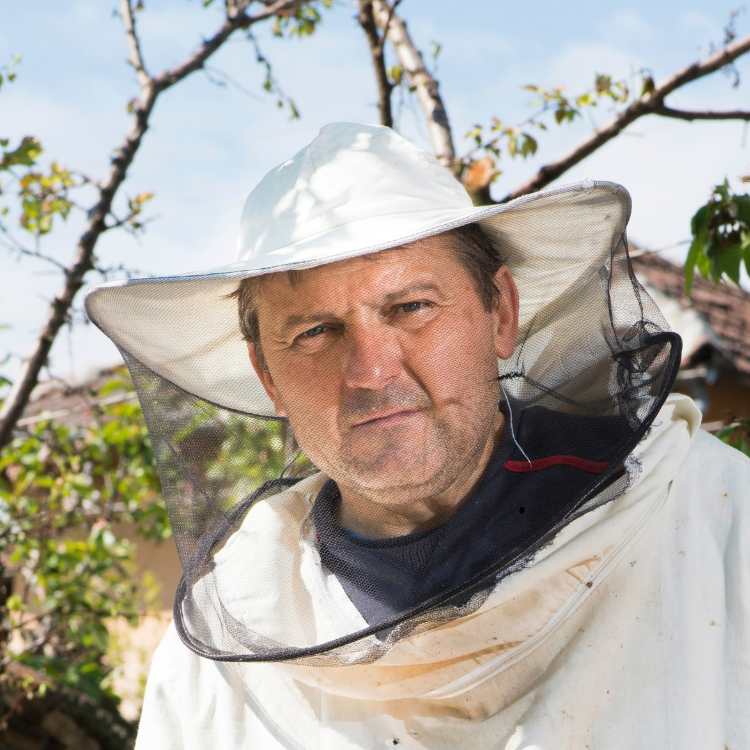Perhaps among the most fascinating creatures in nature, bees play a very important role in pollination and the food chain. And by a stretch, one of their most remarkable abilities is their honey production. After all, it is what most of them are associated with. But why do bees make honey? Is it purely for human consumption? Or does it serve a deeper biological purpose for these little flying buzzers? Here is a closer look at why do bees make honey and understand the science behind how it’s made. Let’s jump right into the fun bits.
Survival through seasons
The biggest reason why do bees make honey is survival. Unlike most other insects, bees do not undergo hibernation and therefore they need to stay active within their hives. And since scouts are unable to venture out due to the cold weather, they will need a food source to survive the winter. Honey becomes the alternative to nectar during winter. By making honey, bees ensure that the entire colony can survive the harsh, frigid climate without the need to forage.
However, this is not the case for all species. Take the example of the bumblebees. When winter comes, the queen bee hibernates underground while the rest of the colony perishes because they do not stockpile their winter food.

High longevity
Another key reason behind why do bees make honey is the remarkable shelf life it offers. Honey is rich in sugar and low in water, which makes it naturally resilient to bacteria and fungi growth. This means honey remains unspoiled indefinitely. As soon as the honey is fully processed, bees seal the honeycomb cells with fresh beeswax, which keeps the honey safe from the elements until it is needed.
Fun fact: Not all honey is made from flower nectar. In some regions, bees collect honeydew. Honeydew is a sugary secretion from insects like aphids that feed on plant sap. This type of honey is darker, more mineral-rich, and nutritious.
The importance of honey to the colony
The sheer amount of honey a colony produces is another clue to answering why do bees make honey. Honey is a perfectly balanced source of food for the entire colony but why do they make it in surplus? Typically, a healthy hive is going to produce up to two to three times the amount it needs. So, why all this extra? This surplus production ensures that the colony is able to survive even the most harshest of winters or times of other environmental stress.
Honey contains all the essential nutrients. Carbohydrates for energy. Vitamins, minerals, and antioxidants to maintain overall health.
How is honey made?
What goes behind the hive is a very fascinating process to learn about. Here is a quick overview of how it is made.
- Honey is primarily made from flower nectar. Forager bees use their long, tube-like tongues called proboscises to suck up the nectar. This nectar is then stored in a specialized organ called the honey stomach. This allows the bees to carry the nectar back to the hive without digesting it.
- Once inside the bee’s honey stomach, enzymes like invertase begin to break down the complex sugars into simpler ones. This helps to prevent crystallization and make the nectar more stable.
- Once the bee is back at the hive, the foragers pass the stored nectar mouth to mouth among other worker bees in the hive. This transfer process breaks down the sugars even further and reduces the moisture content. The younger bees are then going to deposit this nectar into hexagonal beeswax cells in the honeycomb. But the process is not over yet. At this stage, the nectar contains over 70% water, which is not suitable for long-term storage.

Bees and ecosystems
Beyond their honey production duties, bees are also vital in sustaining entire ecosystems. Being one of the most crucial pollinators, bees are responsible for pollinating over one-third of the world’s entire food crop. Honeybees contribute to over 90 percent of that work. So without bees, several fruits, vegetables, and nuts would simply cease to exist and the consequences can be drastic. And as climate change and habitat destruction continue to threaten bee populations, understanding why do bees make honey becomes more crucial than ever before.
A wrap-up
As more people begin to recognize why do bees make honey and why it matters, the efforts to safeguard them can be more effective and widespread. Bees make honey to survive. It is not just for the pleasure of us humans. It allows them to survive the winters. This process is a remarkable adaptation that allows honeybee colonies to thrive throughout the year, even in the most relentless conditions. The careful transformation of nectar into honey ensures a stable supply of food for the bees while also benefiting humans by pollination our crops and giving us a sweet elixir that we all adore.
Ain’t the world of bees and honey super sweet? Learn everything about bees and join in on the effort to save the bees with our full blog here.




